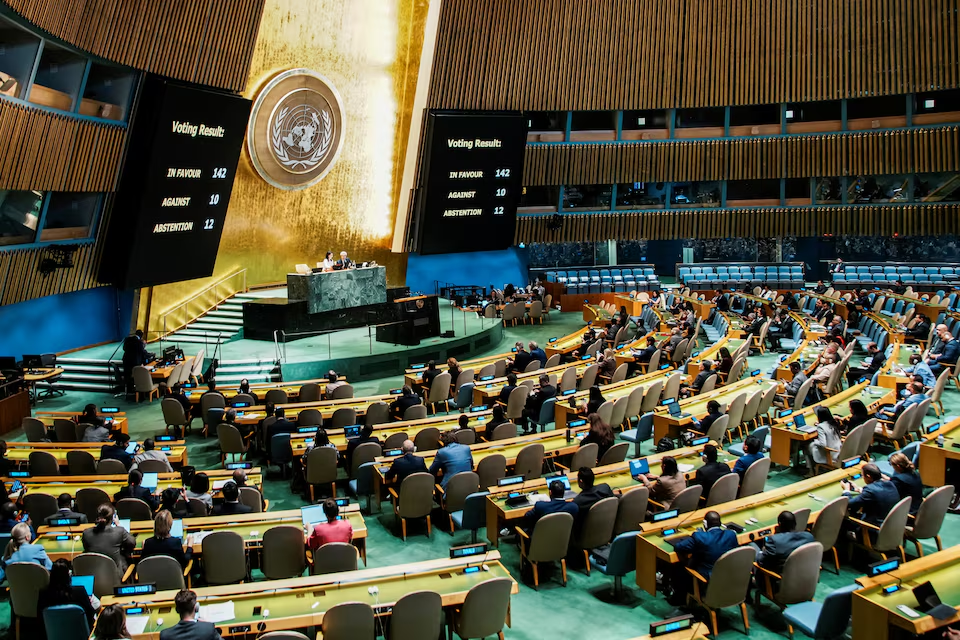The United Nations General Assembly on Friday (September 12) overwhelmingly endorsed a declaration calling for “concrete, time-bound, and irreversible steps” toward a two-state solution between Israel and the Palestinians.
The seven-page declaration was the outcome of a global summit hosted in July by Saudi Arabia and France at the UN. Both Israel and the United States boycotted that summit.
The resolution tied to the declaration passed with 142 votes in favor, 10 against, and 12 abstentions. Opposing countries included the United States, Israel, Argentina, Hungary, Papua New Guinea, Paraguay, Micronesia, Nauru, Palau, and Tonga.
While reaffirming support for the two-state framework, the declaration also condemned the October 7 attacks by Hamas. At the same time, it criticized Israel’s strikes on civilians and civilian infrastructure in Gaza, as well as the ongoing blockade and deliberate starvation tactics in the territory. It called for an immediate ceasefire in Gaza and recommended the possible deployment of a “temporary international stabilization mission” under UN Security Council authority.
The vote drew widespread reactions. The U.S. representative to the UN described it as a “misguided and theatrical” move, arguing it would “hand a gift to Hamas” and undermine diplomatic processes. Israel’s representative, Danny Danon, echoed this sentiment, dismissing the resolution as “biased and performative,” claiming it would only serve extremist factions.
In contrast, France—which co-hosted the July summit—welcomed the vote, describing it as a step toward isolating Hamas and emphasizing the urgent need to disarm the group.
Arab Gulf states also supported the resolution, framing it as evidence of growing international consensus to end the war and pursue a political solution.







